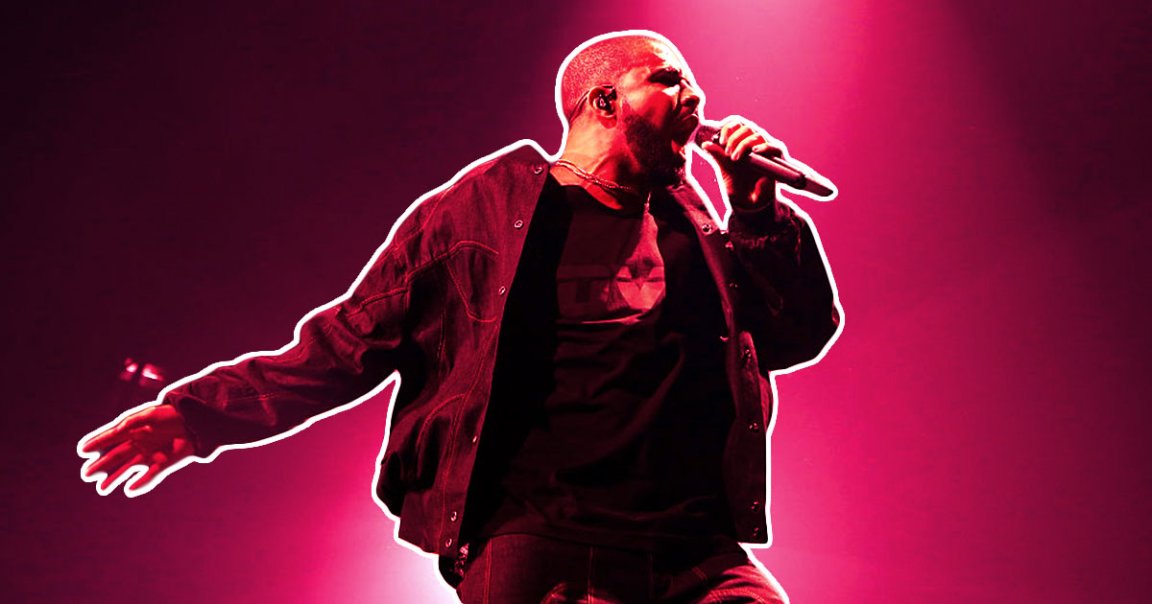
Record label behemoth Universal Music Group (UMG) is not happy about a song that used AI-generated vocals to imitate Aubrey “Drake” Graham and Abel Makkonen “the Weeknd” Tesfaye — some of its biggest artists.
UMG has forced the song called “Heart on My Sleeve” to be removed from Spotify and TikTok, and has since sent letters to Spotify, Apple Music, and other music streamers asking that they block AI tools from training their models on its artists’ melodies and lyrics, Financial Times reported last week.
“We will not hesitate to take steps to protect our rights and those of our artists,” UMG stated in an email to online platforms, as quoted by the FT.
And the label is still hellbent on sending home its message a week later. In a statement to CNN, UMG likened AI music to “deep fakes, fraud, and denying artists their due compensation,” calling out AI platforms for causing “harm” to artists with their services.
Still, while big record labels are notoriously tyrannical when it comes to copyright protections, experts say even they face an uphill battle when it comes to shielding their content from AI.
After all, what is uploaded to the internet, usually stays on the internet in one form or another. Countless copies of the AI-generated song featuring an imitation of Drake’s vocals are already being passed around on YouTube, despite the platform’s removal of the original upload.
“I understand the intent behind the move, but I’m not sure how effective this will be as AI services will likely still be able to access the copyrighted material one way or another,” Karl Fowlkes, an entertainment attorney, told CNN.
Shelly Palmer, a professor of advanced media at Syracuse University, echoed Fowlkes’ sentiment.
“You can flag your site not to be searched,” he told the broadcaster. “But that’s a request — you can’t prevent it. You can just request that someone not do it.”
As the de facto overlord of the music industry, UMG is more than capable of throwing its weight around and causing a big stink. Last year, UMG won a lawsuit against an internet service provider after arguing it didn’t do enough to crack down on users’ piracy of its music. UMG and other heavyweight labels in the suit were awarded nearly $47 million.
In short, UMG has no qualms about bullying other industries that it views as a threat to its bottom line.
But AI is a whole other can of worms, though it’d be remiss to downplay the similarities between the record label’s vendetta against piracy and its burgeoning anti-AI crusade.
Given the lack of clear regulation around the authorship and copyrights of AI-generated content, however, UMG is navigating — and maybe even trailblazing — uncharted legal territory.
Seemingly playing it safe, UMG hasn’t taken any serious legal action so far. Instead, it’s limited itself to sending out takedown requests and pleas to streamers — perhaps early signs of impending escalation.
Other industries battling AI may provide an analog of what’s to come. Getty Images, which is essentially the UMG of stock photos, sued Stability AI for training its AI image generator on Getty’s photos without permission or compensation.
Crucially, Getty’s lawsuit focused on the “input stage ingestion of copyrighted images,” as copyright lawyer Aaron Moss argued on Twitter. In other words, the lawsuit hinges on not being compensated for the AI training, rather than fielding less legally tangible arguments about AI threatening an industry or the livelihoods of artists.
If UMG chooses to escalate its fight against AI music, you can likely expect a similar argument.
More on AI: Fury as Magazine Uses AI to Generate Fake Interview With Michael Schumacher